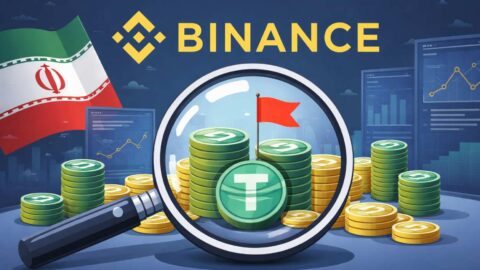Nvidia signs $1.5 billion deal to lease back 18,000 AI chip servers from Lambda as chip demand intensifies and IPO buzz builds.
Key Takeaways
- Nvidia will lease 18,000 GPU servers from Lambda for a total of $1.5 billion, split across two contracts.
- The deal highlights severe shortages of AI chips even for Nvidia, the world’s top chip designer.
- Lambda becomes Nvidia’s largest customer ahead of its planned IPO, signaling strong market confidence.
- The agreement is part of Nvidia’s wider strategy to back smaller cloud firms and counterbalance Big Tech chip development.
What Happened?
Nvidia has inked a $1.5 billion agreement with AI cloud startup Lambda to lease back 18,000 servers powered by its own chips. The deal arrives amid a global shortage of high-performance GPUs and marks a strategic move for both companies. Lambda, which is preparing for an IPO, now counts Nvidia as its largest customer and financial backer.
🚨 $NVDA will rent 10,000 of its own AI chips from the cloud firm Lambda for $1.3 billion over four years
— Daniel Romero (@HyperTechInvest) September 4, 2025
What does this mean for $NBIS?
Even more constrained AI cloud supply
That’s additional TAM unlocked for $NBIS pic.twitter.com/q2pBPkmQCD
Nvidia Turns to Startup Lambda for Critical AI Compute Power
In a surprising twist, Nvidia is renting back thousands of its own AI chips from Lambda, a company it already supplies and has invested in. The arrangement includes:
- A $1.3 billion, four-year lease for 10,000 servers.
- A $200 million contract for an additional 8,000 servers.
This circular relationship underscores just how tight the supply of powerful GPUs has become. Even as Nvidia dominates chip design and production, it is choosing to partner with smaller players like Lambda and CoreWeave to ensure immediate access to large-scale AI infrastructure.
Lambda’s Business Model Pays Off
Lambda specializes in renting high-performance servers to AI developers, many of whom rely on Nvidia’s chips. But it is not just about the hardware. Lambda offers an integrated AI cloud environment, complete with:
- Power management systems
- High-speed networking
- Software tools for managing thousands of GPUs
This ready-to-use infrastructure is invaluable for Nvidia’s own research teams and its DGX Cloud services. By leveraging Lambda’s platform, Nvidia avoids the costs and delays of building new facilities, all while strengthening its grip on the AI ecosystem.
A Timely Boost Ahead of Lambda’s IPO
For Lambda, the timing could not be better. The startup, founded in 2012, now employs about 400 people and has rapidly transitioned from selling GPU servers to becoming a full-fledged AI cloud provider. The company has ambitious goals:
- $1 billion in cloud revenue projected for 2026.
- $20 billion by 2030, according to internal targets.
- A plan to scale computing power from 47 megawatts to 3 gigawatts by the end of the decade.
With this Nvidia deal in hand, Lambda is expected to draw strong interest when it launches its IPO.
Strategic Partnerships Shape AI’s Next Chapter
Nvidia’s partnership with Lambda mirrors its previous support of CoreWeave and reflects a broader market strategy. As tech giants like Amazon, Microsoft, and Google race to develop their own AI chips, Nvidia is diversifying its customer base by empowering smaller cloud players that still rely heavily on its technology.
This move also reinforces Nvidia’s dominant role in AI by:
- Cementing customer loyalty.
- Maintaining market share despite emerging in-house chip rivals.
- Gaining immediate access to scalable computing without major new construction.
CoinLaw’s Takeaway
In my experience covering the AI hardware space, this deal screams strategic brilliance from Nvidia. It is not just a rental agreement; it is a power move. Nvidia is playing both sides of the table – as a supplier, investor, and now a client, ensuring it stays at the heart of the AI revolution. And for Lambda, clinching a billion-dollar-plus contract right before going public? That is the kind of confidence boost money cannot usually buy. This partnership is a textbook example of how scarcity can be turned into a business opportunity.


































































